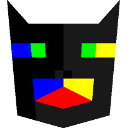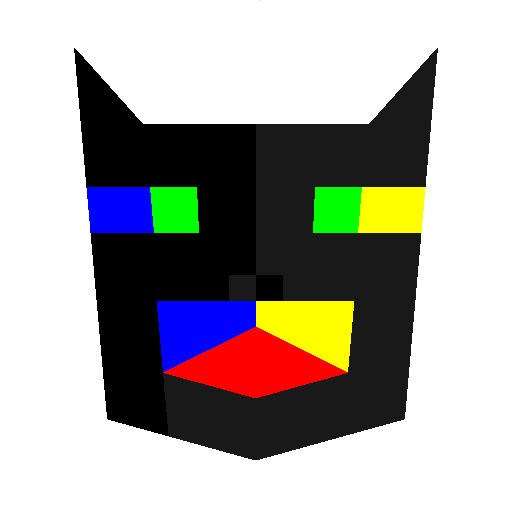Older Projects (pre-2014)
See Current Projects for more up to date works.

2003-2007 Panther Software
Hockey Stats Website and CMS
Built in just under a week, in 2003, this CMS and website recorded statistics for over 20,000 player profiles in the Winnipeg Alternative Hockey Association. Though this technology was cutting edge at the time, it uses dated technologies, by today's standards. The website stopped operating in 2019. Not bad for a one week little project!
Home Decor E-commerce Website and CMS
An unfunded early venture, The Enchanted Home was a major foray into e-commerce in 2004. This is one of the earliest adopters of the ASP.NET technology. In fact, Panther Software was a registered beta tester for the now widely used .NET technology seen in thousands of e-commerce sites today.
At its peak, over 300 unique items were tracked in inventory, with 5 local businesses acting as suppliers. Unfortunately, lacklustre sales, poor margins and an insufficient marketing budget caused it to fold in 2006. No investors were hurt!
Work Software Systems/iQmetrix POS Updater
This was a brief stint in 2006 where Panther Software developed one of the first automatic updating Point of Sale (POS) software services in the industry! This project involved the development of a server registry service and client tools that could detect updates, and apply them. Today, this kind of updating is commonplace, but in 2006, only the top tier platforms offered it.
The company was bought out shortly after the framework was developed at WSS. However, the basis of the system design is likely still part of the technology used at iQmetrix, today.

2000-2004, 2006-2013 Video King Gaming and Entertainment
Keno
Developed in 2000, this popular game, in any casino, featured custom ball rotation animations, a little more sophisticated than the 90s version!
You've probably seen it if you've been to any of the 100's of casinos Video King had software in.
Handset Pull Tabs
In 2001, the Lil' Champ was the first embedded system that Panther Software developed software programs for. Though many applications were developed for it, this project, was the most feature complete.
The project not only included programming of the game and graphics engine itself, but, managing the data structures and protocols where game data was downloaded from a server. The file format had redundant duplication, much like you see on a RAID server. The server also kept copies of all result and prize information, in the event of a dispute.
Hurricane Bonanza
One of the most profitable games in company history, Hurricane Bonanza, also known as Quickshot Bonanza, was not only programmed by Panther Software, but it came up with the original marketing name for it too!
Designed to be played much like a slot machine on touch-screen monitors, this fast-paced game lets you play random bingo cards based on pre-called random numbers generated from Video King's custom blowers. This game was so wildly successful in Florida and California, that numerous other competitors later copied it!
Battery Management
Panther Software developed battery test software to allow refurbishment of Lil' Champ handsets in 2004.
Player Club
The Player Club CMS, player rewards and tracking system was one of the first tasks assigned upon returning to Video King in 2006, after a hiatus developing e-commerce systems. Being one of the few experts in the new C#.NET programming language, at the time, made Panther Software the logical choice.
Panther Software was given a maintenance contract, to support the software, and to import player data from older style tracking systems. Numerous database scripts and auditing tools were developed to ensure player information was accurate and up to date.
The Player Club is used in 100's of casinos worldwide! If you have a Player Club card, odds are, your profile was created thanks to software engineered by Panther Software.
90 Number Bingo
Similar to the Pull Tabs project, this system encoded unique data-structures to represent card data in less than 8 bytes. Amazing when you consider there are more numbers than that on a card! The games were then played on the newer Super Champ devices. This style of bingo is played primarily in Australia.
Factory Acceptance Test
The FAT was a suite of software applications designed by Panther Software to verify handset manufacturing quality, and to assign serial numbers.
The programs allowed the factory to confirm basically functionality such as power, file writing, LCD display, battery characteristics, sound and that the buttons worked correctly. It recorded the results in a database, and passing it was required for the manufacturing the the Super Champ handsets.
The OMNI Framework
This was by far the longest term project that Panther Software was a part of. It included the participation of almost a dozen computer scientists and electrical engineers.
Beginning in 2007. and spanning until today, this software suite includes all components required to operate a casino according to legal requirement, in many US states, and around the world.
This project included merging the POS software with the Player Club tracking systems, two very large applications on their own.
Later, additional modules were created, such as the Paymaster module, which kept records of all bingo winnings, and calculated taxes. The W-2G form, for example, had a framework built for it, to permit the Paymaster to automatically print government issued forms, that could be given to all required parties. The system allowed for a reasonably simple way for customers to update their form templates with newer tax rules, via distribution of the latest form, and a map file. This was essential, as casino software is heavily regulated, and having to release new versions of this massive suite can take days, otherwise!
Other components of the OMNI system included Inventory, Pull Tabs payout and Vault management, to name a few. Numerous years were invested by Panther Software supporting or advising on the design architecture of the system itself. Standardizing buttons, receipts, card prints, and database structure rules were part of the day-to-day tasks. Panther Software was also tasked with compiling builds, creating installers, and providing release notes. Basically, Panther Software was responsible for ensuring everyone's hard work was deployed successfully to the customers, gaming regulators, or any parties that needed the latest version.

